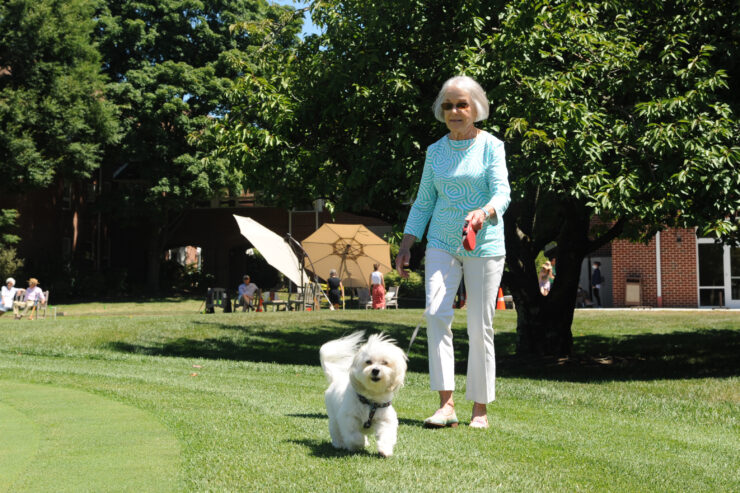The summer is officially here and with all the excitement of longer days, barbecues, fireflies and more, comes the sweltering heat. Heat is dangerous for people of all ages, but according to the CDC, “People aged 65 and older are more prone to heat-related health concerns. Older adults can’t adjust to sudden temperature changes as fast as younger people.”
There are many different steps and precautions you can take to protect yourself and others during the summer months. Some of these include:
Hydrate
Water is more important than ever in the heat. Drinking plenty and often is the best way to keep your body hydrated and cool when the weather warms up. A common baseline for hydration is to consume eight or more eight-ounce glasses of water every day, but in summer months you may need even more. Dehydration can cause a lot of serious health issues so it’s best to stay ahead of the thirst by keeping a water bottle on you at all times in the summer months. If you’re feeling thirsty, you’re already dehydrated.
Keep an eye on the weather
Plan your activities accordingly and if there’s going to be a heat advisory or air quality alert, make sure you stay indoors. On more moderate days, planning outdoor activities for early morning or evening is the best way to avoid the brunt of the day’s heat. Limiting your outdoor time to short intervals can also help to regulate sun and heat exposure.
Protect Yourself
Wear sunscreen, sunglasses, and light clothing to protect yourself from the damaging and dehydrating effects of sun exposure. Many clothing brands also offer Ultraviolet Protection Fabric (UPF) items to protect your skin from how much UV radiation reaches your skin. Hats can be another great source of coverage for your eyes and sensitive skin on the face.
Be Aware of Your Medications
Some medications can have side effects such as sun sensitivity so it’s important to know if you have any additional risk. Heat can also impact the quality of medications so knowing how they all need to be stored and remembering to pack them for any vacations is also something to keep in mind during the summer.
Crank the AC
If it’s hot, stay in the air conditioning; whether it’s at home, at a store, restaurant or even library, that’s the best place to be in the heat. If you don’t have air conditioning at home make sure you have a friend/relative who does and you can stay with during any heat waves. You should also be sure to maintain regular service or filter changes for your air conditioning to ensure it’s functioning properly and whenever you need it.
Know the Signs of Heat-Related Illnesses
Heat-related illnesses can come in many forms and have lots of different signs that you can look for in yourself or your loved ones. The CDC’s list of heat-related illness signs and what to do can be found here: https://www.cdc.gov/disasters/extremeheat/warning.html
*https://www.cdc.gov/aging/emergency-preparedness/older-adults-extreme-heat/index.html#:~:text=People%20aged%2065%20or%20older,ability%20to%20regulate%20body%20temperature.
